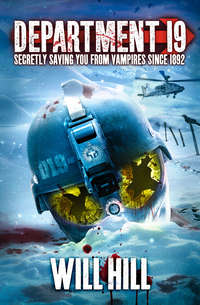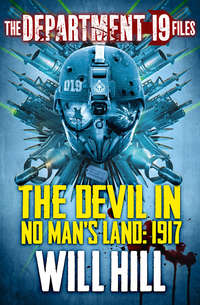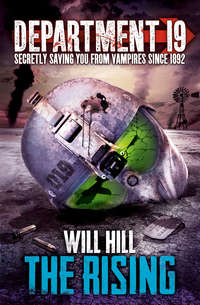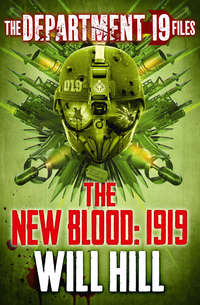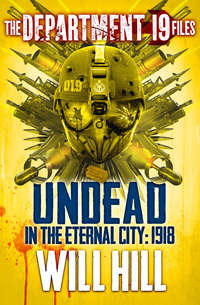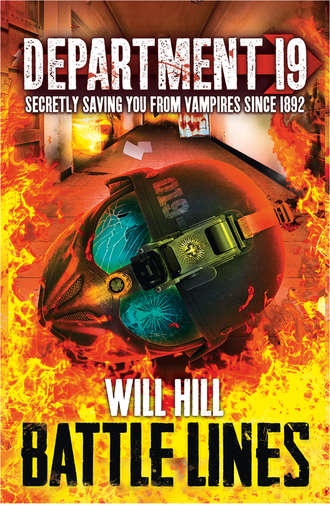
Полная версия
Battle Lines
“I don’t care,” she said. “Let them hate me.”
He had tried to talk her out of it for a further half an hour, but once it became clear that she was not going to be persuaded to change her mind, he had done the second thing she had expected: told her that he would stick up for her, no matter what anyone else said or thought. She had thanked him, and given him a long hug that had brought tears to her eyes and a lump to her throat.
Larissa and Matt had both been amazing in the aftermath of Shaun’s death, and could empathise with her, up to a point; both were living without the people they loved, in Matt’s case voluntarily, in Larissa’s as a result of what had been done to her by Grey, the ancient vampire who had turned her. They understood loneliness, and what it meant to miss someone, but they couldn’t fully appreciate what she was going through. Jamie was the only one who could, having watched his father die less than three years earlier.
Kate would never have dreamt of suggesting that her loss in any way compared to his. She had only been with Shaun for a couple of months, barely any time at all, even given the hyper-reality of life inside Blacklight. She knew the loss of her boyfriend didn’t come close to the loss of his father, and never tried to claim otherwise. But what it did mean was that Jamie understood the thing that she was struggling to find a way past, the same thing that had tormented him in the months that followed Julian Carpenter’s death: the fact that Shaun was gone, that everything he had ever been, everything he might one day have become, had disappeared into nothing. She was never going to see him again, and neither was anyone else. He wasn’t somewhere else, separated from her by distance or protocol or orders.
He was dead and he was never coming back.
Paul Turner’s eyes had lit up when Kate entered his office and volunteered for ISAT.
She had spent a lot of time with the Security Officer since Shaun had died, a mutual support system that had been observed with utter bewilderment by the Operators of Blacklight, many of whom had never genuinely allowed for the possibility that Paul Turner might have human emotions. And, in all honesty, Kate had answered his request to see her the day after Shaun’s death with a significant amount of trepidation; unlike Jamie, she had never spoken privately with the Security Officer and was not afraid to admit that she was scared of him. But he had welcomed her into his office that dark, terrible day with a warmth that she could never have expected or prepared herself for. He made her tea and asked her about his son; she told him about her boyfriend, and felt unsteady common ground form beneath them.
Kate had, in fact, become immensely fond of Major Turner, and she was increasingly sure the feeling was mutual. The last time she had gone to visit him, he had mentioned the prospect of her coming to meet Shaun’s mother once all this horror was over. Caroline Turner, who was Henry Seward’s sister as well as Paul’s wife, and who therefore must be going through a hell that Kate couldn’t even begin to imagine, with her son dead and her brother in the hands of the enemy, had apparently asked repeatedly to meet her. She had accepted gladly, and Turner told her they would arrange it when the time was right. As a result, her appearance at his door on the day she volunteered for ISAT was not a surprise. He had welcomed her in, and listened as she explained why she was there.
“Are you sure?” he asked, when she had finished.
“Yes.”
“Thank you,” he said, and hugged her. The sensation was so strange that for a long moment she stood stiffly in his arms, before gradually bringing her own up and wrapping them round his broad shoulders.
With Kate on board, ISAT was ready to go in less than a week. The rooms were equipped, the Intelligence Division briefed, and preliminary interviews carried out on the men and women who would be working for the team; this included Kate and Paul Turner, who insisted on going first. By this point, the Intelligence Division had been carrying out the most invasive background checks in the history of the British Intelligence Services for almost a month; they had been Turner’s first order as soon as ISAT was authorised by Cal Holmwood. Turner’s was complete and had come back spotless. But the revised checks were only half of the process; the other half was an interview, with the subject attached to a lie-detector machine more sensitive than any available to the public.
The ISAT machines measured the same variables as regular lie detectors – heartrate, breathing patterns, perspiration etc. – but did so with a precision that was unmatched. They returned results that were 99.9 per cent accurate; from a mathematical perspective, they were as close to infallible as it was possible to be. The Intelligence Division staff had attached pads and wires to Paul Turner’s body, and Kate had asked him the questions they had devised together; he passed, as no one had ever doubted for a second. Then Kate had taken her turn, followed by the eight members of the Intelligence Division that had been assigned to ISAT. All passed, and Major Turner had sent a message to Interim Director Holmwood, telling him they were ready for him.
That had been yesterday.
Cal Holmwood had also passed, to the surprise of precisely no one, and had given them the final order to begin. To avoid any possible accusations of agenda, they were taking the Operators in computer-randomised order; the first of them, Lieutenant Stephen Marshall, looked up as Kate and Turner entered the interview room. The pads and wires were already attached to his body, and his face bore an expression of outright contempt as they took their seats opposite him.
“Lieutenant Marshall,” said Paul Turner. “Do you need anything before we begin?”
Marshall’s face curdled with disgust. “Just get on with it,” he spat.
“As you wish,” replied Turner, and glanced over at Kate. She nodded, then opened her folder of questions to the first page.
“This is ISAT interview 012,” she said. “Conducted by Lieutenant Kate Randall, NS303, 78-J in the presence of Major Paul Turner, NS303, 36-A. State your name, please.”
“Lieutenant Stephen Marshall.”
Kate looked down at the table; set into its surface was a small screen, angled in such a way that it could not be seen by the interviewee. Two grey boxes filled it; these displayed the results of the two sets of monitoring equipment that were humming quietly away on either side of Lieutenant Marshall’s chair. After a millisecond or two, both boxes turned bright green. She nodded.
“Please answer the following incorrectly,” said Kate. “State your gender.”
Marshall smiled, slightly. “Female.”
Both grey boxes turned red.
“OK,” said Kate. “Let’s get started. Are you a member of Department 19?”
“Yes.”
Green.
“Do you currently hold the rank of Lieutenant?”
“Yes.”
Green.
“Are you currently assigned to the Surveillance Division of said Department?”
“Yes.”
Green.
“Do you understand that your position involves the acquisition and analysis of data that is classified above Top Secret?”
“Yes.”
Green.
“Have you ever used your position for any purpose other than directly specified in your orders?”
Marshall tensed with anger. “No,” he said.
Red.
“I would ask you to think very carefully about your last answer,” said Paul Turner. “Lieutenant Randall is going to ask you the question again.”
Marshall’s face began to colour a deep crimson. “This is absolutely—”
“Lieutenant Marshall,” interrupted Kate. “Have you ever used your position for any purpose other than directly specified in your orders?”
“Yes,” spat Marshall. “You obviously know I have.”
Green.
“Please explain the circumstances that led to your last answer,” said Kate.
“My girlfriend and I were having problems,” said Marshall, his face burning red, his voice like ice. “She was acting weird, being secretive, lying about stuff. So I listened in on a couple of her phone calls.”
Green.
“When did this incident take place?” asked Turner, taking over the questioning as Kate sat back in her chair. Marshall stared at her with eyes full of hatred, then turned his attention to the Security Officer.
The first interview, thought Kate. The very first one and I’ve already made an enemy. Jamie told me they were going to want my head if I did this.
She had no idea how right he was.
6
CIVILISED MEN
CHÂTEAU DAUNCY AQUITAINE, SOUTH-WESTERN FRANCE
“More wine?” The voice was smooth and full of quiet authority.
Admiral Henry Seward nodded, raising his glass with one slightly trembling hand. A servant in immaculate black and white eveningwear, his eyes glowing a faint, respectful red, appeared beside him and filled his glass with wine that was a purple so dark it was almost black. The chateau’s cellar contained treasures that would have widened the eyes of even the most experienced sommelier, and bottle after stunning bottle was brought up and decanted every evening in anticipation of dinner, even though the diners never numbered more than three, and usually only two.
Such was again the case this evening.
Henry Seward sat at one end of a long table that could easily have seated twenty, while his dinner companion sat at the other. A small team of vampire servants attended to his every request, looks of devoted terror on their supernatural faces, although Seward knew full well it was not him they were scared of.
The source of their fear was sitting at the other end of the table, a gentle smile on his narrow face.
Vlad Tepes, who had later been known throughout Europe as Vlad Dracul and Vlad the Impaler, and who had eventually come to call himself Count Dracula, sat easily in his chair and regarded his guest. Valeri Rusmanov, who could not be faulted for his loyalty or his diligence, but often left much to be desired when it came to manners and etiquette, referred to Seward only as ‘the prisoner’, which was unacceptable to Vlad. It was factually accurate, but it created an atmosphere he considered unbecoming of civilised men, men who had commanded armies and fought for what they believed in. So he referred to Henry Seward as his guest, and treated him accordingly during the dinners they shared. The treatment the Director of Department 19 received in the long hours of darkness after the meals were finished was far less civilised, but was a regrettable necessity of the situation. Regrettable from a perspective of manners, that was. From a personal perspective, Vlad found the nightly torture of Henry Seward utterly delightful.
The first vampire looked down the length of the long table at his guest. Seward was clad in a beautiful dark blue suit that Vlad had ordered made for him by one of the finest boutiques in Paris. He had sent one of Valeri’s servants north to collect it two days earlier, and had been pleased to see that it fitted his guest like a glove. He had not been sure that it would; Seward was losing weight rapidly, a result of the deprivations and torments that had been inflicted upon him in the last month. And, despite the elegant shimmer of the suit and the soft lines of the shirt and tie beneath it, the damage inflicted during the long nights could not be completely hidden.
Two fingers were now missing from Henry Seward’s left hand; they had been broken with hammers and torn off at the end of the day the Blacklight Director had been delivered to the chateau by Valeri, who had worn a grin of immense satisfaction on his craggy, mountainous face as he presented his prize to his master. The stumps were bandaged neatly, and the dressings were changed every day by a vampire servant who had once been a doctor. More bandages, small caps of bright white, covered the tips of five of Seward’s remaining fingers, hiding the ragged pink flesh that had been uncovered as his fingernails had been pulled out. It was an ancient torture, one of the very oldest, and although it could not be expected to break a man with as much determination and experience as Henry Seward, it still produced a pitch of scream that was music to Vlad’s ears. It was also a good place to start, an early benchmark to establish, from where things would only get worse the longer the victim held out. And, indeed, they had got much, much worse.
Beneath his suit, the Director’s body was a horror of bruises, burns and wounds: marks left by simple beatings, by lead pipes and plastic cables, and by pairs of metal clips attached to a car battery. As was appropriate for a man of his standing, Vlad had not inflicted any of this damage himself; instead, he had stood and watched Valeri and two of his servants as they worked, maintaining an air of detached professionalism as the torture was administered. But, beneath his veneer of disinterest, his mind raced with possibilities and his stomach churned with a longing so powerful it was almost physical: a desire to push the others aside, to spill blood and inflict pain with his own bare hands.
Throughout it all, Seward had told them nothing beyond his name and his Blacklight identification number. Vlad was impressed by the man’s fortitude, though he knew full well there were things he could order done to his guest that he would have no chance of withstanding. But he was in no hurry; there would come a time when he would need to know everything Seward knew, in case there was something of which Valeri was unaware, but it could wait. His recuperation was progressing well, fuelled by a constant stream of warm running blood. He was now draining three or four human beings every day, each drop of their blood contributing to his gradual return to what he had once been. Valeri sent his servants out each night, and each morning they returned before dawn with victims taken from the surrounding towns and villages. Vlad had ordered them to make sure they spread their hunts far and wide; he had no interest in creating a panic or attracting unnecessary attention to this isolated corner of the world, not when he was so close to regaining the power he had once taken so recklessly for granted. He was not there yet, not by any means, but he was getting closer with each passing day, with each swallowed mouthful of blood. And the exquisite reality of the matter was this: there was, in truth, almost nothing Henry Seward could tell him that he didn’t already know.
The Operational frequencies of the various Departments, the access codes to their bases and computer systems, these were things that could have one day been extremely useful to Vlad and Valeri. However, both vampires knew full well that they would all have been changed the minute Henry Seward was taken, rendering his knowledge of them useless.
He must know that too, thought Dracula, his gaze locked on his guest. Surely he must. Yet he refuses to tell us, regardless. Admirable.
Until his recovery was complete and he was ready to take direct action, Vlad was content to let Seward believe he was successfully resisting. When that time came, Seward would tell him everything, whether he wanted to or not, at which point Vlad would kill whatever was left of the man and send his head to Blacklight on a spike. But for now, he was content to play Seward’s game. They would continue attempting to get the Director to give up the information he didn’t want to reveal, using what he would allow Seward to believe were his most persuasive methods, and his guest would continue to refuse. It afforded Seward a measure of dignity, and it helped to pierce the boredom that Vlad had felt so keenly since he had been reborn, boredom that was slowly beginning to abate as the recovery of his mind and body gathered pace. It also afforded him an agreeable dinner companion, sparing him the stoic silence of Valeri’s company or the embarrassment of dining alone.
At the other end of the table, the servant had finished refilling Seward’s glass. Vlad raised his own and waited until his guest did likewise.
“Noroc,” said the ancient vampire.
“Noroc,” replied Henry Seward. He had spoken the Romanian toast many times over the last month, evening after evening, glass after glass; it was now almost second nature.
He drained half his wine, looking forward to the numbing effect of the alcohol, feeling his arm tremble as he raised the glass to his lips. It was one of a number of shakes and tremors that had appeared over the last month, one result of the tortures inflicted upon him every night. Another was his inability to sleep, even when the torment was over: his body was always wracked with pain and thrumming with adrenaline, and when sleep did eventually come, it was fitful, full of bad dreams and echoed agony.
Seward was exhausted, in constant pain, and knew his body was beginning to fail him. It wasn’t the result of any one particular torture, but the cumulative effect of them all; he had begun to cough up blood in the mornings and see spots of red in the toilet bowl after he urinated. He coughed steadily, and struggled for breath after climbing only a handful of stairs. It was now clear that he didn’t have long to live, as he knew very well that Dracula was never going to let him leave this place; he had come to terms with the realisation that he would never see his family and friends again. He also knew, although he didn’t think Dracula realised that he did, that he was resisting telling them information that was worthless.
He knew that Dracula believed he was playing with him, letting him be brave and resilient while waiting for the right moment to prise whatever Seward was hiding from his head. But the ancient vampire was wrong: he was holding no secrets, no information that would be of use to them. When the monster unleashed whatever agonies he was holding back, he would tell him everything; when the vampire realised that none of it was useful, Seward would spit blood in his face before he died. In the meantime, he would grit his teeth and take what they gave him, and join his captor in this bizarre facsimile of normality each evening, as though they were two old school friends having dinner at their club.
“What are we having?” he asked, glancing at the hovering vampire servants.
“Wood pigeon, I believe,” replied Dracula. “Is that agreeable to you?”
“I’m sure it will be,” replied Seward. The food and wine he had eaten and drunk since he had been taken by Valeri, dragged kicking and screaming into the sky as men and women he had once commanded fought for their lives beneath him, had been uniformly excellent. He supposed he should not be surprised: Dracula had been a Prince when he was a man, then a Transylvanian Count as a vampire, and had been used to the very best of everything, throughout both of his lives.
The man and the vampire sat in silence as the servants suddenly burst into action, delivering silver trays to the table and placing them before the two diners. The lids were withdrawn to reveal a delicate foie gras parfait and home-made brioche that made Seward’s mouth water despite the steady throbs of pain that coursed through his body. He attacked the food, aware of Dracula’s faintly reproachful expression, and demolished the plate within a minute. He sat back in his chair, feeling the energy being released by the food in his stomach and the endorphins radiating out from his pituitary gland.
Eating emboldened him. He had allowed the previous dinners to be filled with small talk, with mindless chatter about the modern world, with stories and tales of their pasts; nothing that had any edge, nothing that might cause offence. It was time for that to change.
“You’re still weak,” he said.
Dracula tilted his head slightly to one side. “I beg your pardon?”
“It was a straightforward statement. You’re still weak. Your powers have not fully returned to you.”
“What makes you say so?”
Seward looked round the room. “The evidence of my own eyes,” he said. “Why else would you be hiding here, surrounded by servants to protect you?”
Dracula frowned. “To protect me?” he said. “They are honoured that I permit them to serve me. It is the highlight of their tiny lives.”
Seward smiled. “I’m sure that’s what you tell yourself. It must be hard for you to admit that even the weakest vampire in this building could kill you with one hand if he chose to.”
Dark red started to bubble in the corners of the first vampire’s eyes, and Seward felt a surge of satisfaction in his chest. Then the ancient eyes cleared and Dracula began to laugh, an awful sound that started small, but went on and on, getting louder and louder.
“Wonderful,” he said, as his laughter finally stopped. “I understand now. You hoped to annoy me with your comment, yes? You believed that I would consider it impertinent. I am extremely sorry to have disappointed you, my dear Admiral.”
Seward swallowed hard. “They’ll find you,” he said, willing his words to be true. “Blacklight will find you and stop you. Your rise will fail.”
“You are like a child,” said Dracula, his voice warm and friendly. “You understand nothing. My rise has already begun, my dear Admiral. I am out there in the darkness, as we speak. I am everywhere. I am legion.”
“What are you talking about?” asked Seward, cold fingers working their way up his spine.
Dracula shook his head. “You will find out soon enough,” he said.
The servants scuttled back into the room, removing the plates and placing new cutlery before the vampire and his guest. Then they were gone, as a second team delivered new plates of food.
Dracula lifted the silver lid from the plate before him and favoured Seward with a wide, contented smile.
“As I thought,” he said. “Wood pigeon. Bon appétit.”
7
SINK OR SWIM
“So where do we start?” asked Patrick Williams.
“Intelligence is putting together probable location lists,” replied Holmwood. “We’ve had every available satellite working outwards from the hospital since early this morning, and we’ve tracked over a hundred heat blooms. They’re where we start.”
“OK,” said Dominique Saint-Jacques. “Let’s get going.”
Holmwood nodded. “I’m sending squads out with lists of five likely target locations. I’m authorising daylight operations, so destroy them before the sun goes down if you can. All usual containment protocols remain in place, and I want it made clear to all Operators that these targets are significantly more dangerous than the vampires they usually encounter. I’m putting in place a hard window of eight hours, after which you come home. I don’t care whether you’ve destroyed all five of your targets, or two of them, or none of them. Eight hours, then return to base. Having what’s left of this Department exhausted and careless is not an option. Clear?”
“Clear, sir,” replied Dominique.
“Excellent. I’m officially activating all Operational Squads that include rookies until this threat has been eliminated, then they go back to training. Look after them out there and bring them back safe. Clear?”
“Yes, sir,” chorused the Zero Hour Task Force.
“Good. Dismissed.”
Jamie stepped out of the lift and strode along the central corridor of Level B.
Search and destroy, he thought. Just like that. Search and destroy three hundred super-powerful vampires. No problem at all.
He had left the Ops Room with his stomach churning uneasily. There was no doubt in his mind that the mass escapes of the previous night had been orchestrated by Dracula, or at the very least by Valeri, and that they had the potential to cause widespread carnage. There was a positive aspect to the move: such a large action, designed so clearly to occupy Department 19 and its counterparts around the world for a significant amount of time, strongly suggested that Dracula was not far in advance of their Zero Hour timeline, if at all. But that was going to be of little comfort to the men and women who were by now already heading out to hunt down the escapee vampires.



